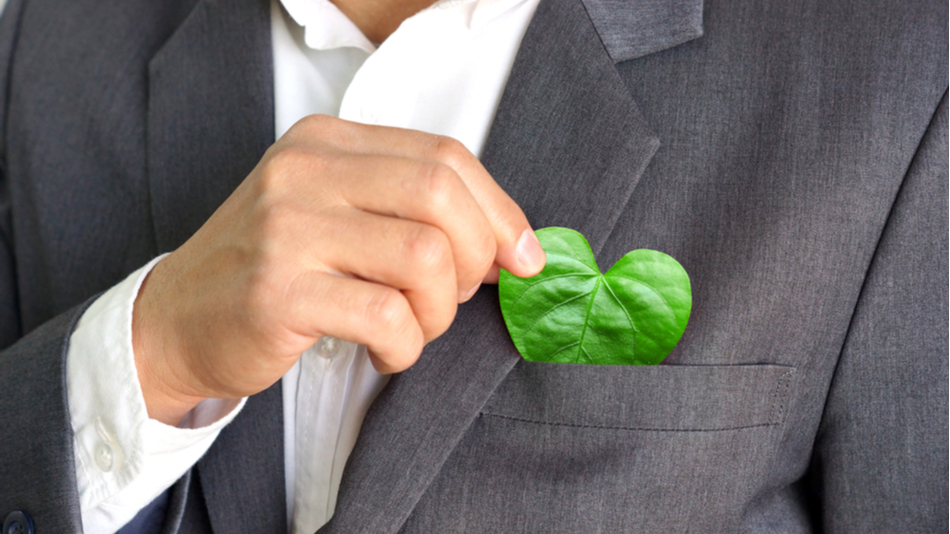The concept of conscious capitalism was born in retail—co-created by John Mackey, one of the founders of Whole Foods. Arriving on the scene in 2013, the central tenet of conscious capitalism is that businesses should benefit the world around them, not just its traditional stakeholders (i.e. stockholders, board members, lenders, etc.). Businesses committed to conscious capitalism seek to also serve the environment, the surrounding community, and their employees as well.
The rationale behind this brand of capitalism is that a business doesn’t succeed in a vacuum. It relies on its connection to the world around it. By helping those connections thrive, businesses not only succeed at greater scale, but provide positive externalities to the world around them. As defined by Mackey, consciously capitalist businesses “have trusting, authentic, innovative and caring cultures that make working there a source of both personal growth and professional fulfillment. They endeavor to create financial, intellectual, social, cultural, emotional, spiritual, physical and ecological wealth for all their stakeholders.”
Although positively received upon inception, conscious capitalism has yet to be widely adopted. Ironically, in one of the most highly-publicized instances of a company shunning the practice, Whole Foods itself recently chose to no longer provide health insurance to employees working fewer than 30 hours per week (previously, employees working at least 20 hours per week had been eligible).
Despite its lack of ubiquity, conscious capitalism has caught on at some retailers, albeit with mixed results. In this article, we’ll be looking at those handful of retailers that are putting it into practice, and getting into detail about how they do so.
Patagonia: To Save the Planet
For nearly five decades, Patagonia’s been at the forefront of sustainable business practices. From improvements in supply chain to promoting advocacy and activism, the company has implemented a number of measures to responsibly grow its business.
For example, to reduce clothing waste the company implemented a program where customers can trade in used Patagonia products for a credit to purchase another refurbished or deadstock Patagonia item. In addition to reducing waste, the program also drives brand loyalty through a product-guarantee and ensuring that customers receive Patagonia credit when they deposit trade-in clothing.
As an outspoken defender of the environment, the company also decided to donate all of its 2016 Black Friday sales to grassroots environmental organizations. Not only did the event raise $10 million for environmental causes, Patagonia signed up 24,000 new customers in a single day. With a steady growth rate and sales closing in on $1 billion, Patagonia continues to be a success.
Toms: To Solve Social Needs
In 2006, Toms shoes began on the premise that for every pair of shoes sold, another pair would be donated to someone in need. Since then, the company has expanded its giving to include eyewear, drinking water, and grants for causes that it considers to be in line with company values.
Most recently, Toms created a campaign to end gun violence wherein customers could head to the Toms site to send messages to their representatives asking them to take steps to increase gun safety. By driving 730,000 people to their site to send a message, Toms utilized its marketing prowess to engage its customers around its core values.
Although initially successful, and despite having made a huge impact across a number of causes, the company has fallen on some hard times. It continues to be dogged by bankruptcy rumors, and there’s scuttlebutt that Bain Capital, which owns 50%, could sell its stake sometime soon.
Allbirds: For Supply Chain Sustainability
Patagonia isn’t the only apparel retailer taking a supply-chain oriented approach to conscious capitalism—Allbirds has also gotten into the game. The company proudly asserts that their products have all been “meticulously designed to be the most environmentally sustainable they can be.” Most prominently, the shoes’ famous foam soles are made from carbon-negative sugarcane (sugarcane sucks carbon from the air). Even the box the shoes come in is 100% recyclable.
With their unique designs and focus on all-day comfort, the shoes have taken off. As of 2018, the company has revenues of $1.8 billion—just four years after it was founded. And competitors are taking note. Recently, Allbirds noticed that Amazon’s ‘206 Collective line’ shoes bore a very similar resemblance to their own. In response, Allbirds’ founders penned an open letter to Jeff Bezos, offering to share the method for creating their sustainable soles:
“As we’ve done with over 100 other brands who were interested in implementing our renewable materials into their products, including direct competitors, we want to give you the components that would make this shoe not just look like ours, but also match our approach to sustainability.”
This unique approach of sharing environmentally sustainable methodologies with direct competitors could be a harbinger for not only a more conscious capitalism, but a friendlier one as well. After all, industry-wide prioritization of the environment over trade secrets would greatly impact the scale at which reductions in environmental harm would take place.
Wegman’s: For Happier & Healthier Employees
Although probably best-known for its stellar lines of prepared foods and impeccably done produce displays, Wegman’s has committed serious resources against its pursuit of conscious capitalism.
To benefit the community around it, Wegman’s believes in committing people living there, namely, its employees. To that end, Wegman’s annually devotes $50 million towards employee development and dedicated $5 million towards tuition assistance to support employee education. Wegman’s also provides health insurance for qualifying part-time employees, 100 percent company-paid health coverage for dependents (for full-time employees), and a flexible PTO policy.
Moving beyond its employees, but staying within its local communities, the retailer also donated $7.4M to local community-based non-profits.
Perhaps the connection between loyal customers and loyal employees seems to be paying off: the company recently topped $8 billion in sales and has expanded to over 90 locations nationwide. Additionally, as of 2019, they’ve expanded into 7 states and even launched their first New York City outpost.
Is Conscious Capitalism Tied to Success?
Whether it’s an eco-friendly supply chain or advocacy on behalf of workers, each of the retailers above has committed to conscious capitalism in one form or another. Most of the companies discussed above are also currently experiencing success in one form or another—revenue growth, market expansion, customer engagement.
Given the enormity of each of the businesses discussed, it’s difficult to establish a direct connection between conscious capitalism and overall business success. Yet, it’s also true that the broader world, as well as the specific communities these retailers are located in, face a range of serious issues and that each business is taking steps to address those issues. Regardless of the state of the business itself, it’s a welcome sign that retailers are taking steps to better the world around them. For retailers looking to go down this path, it’s not about perfection, but about honestly appraising where you stand on the journey.
CB4 is a solution that retail store managers use to ensure shoppers’ needs are met at each location in their chain. Learn how.



